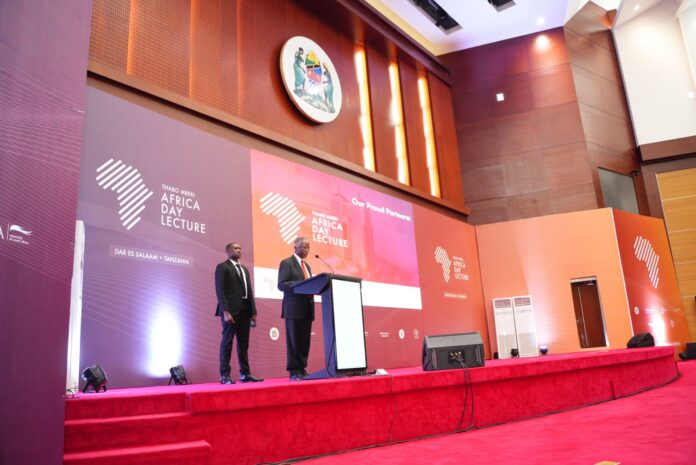By Lesedi Sibiya-Diplomatic Inside
Every 25 May, Africa Day is celebrated across the continent and the world, marking the shared history of liberation and the ongoing pursuit of unity and progress. Rooted in the anti-colonial movements of the 20th century, the day commemorates the founding of the Organisation of African Unity in 1963. This year, special focus turned to Tanzania, a nation that played a vital role in Africa’s liberation struggles.
In the past, Africans have never enjoyed the fruits of their own land due to European colonialists marking their territory all over Africa. Because of this, it seems that many Africans have been robbed of their spirituality, their heritage and identity. Colonisers in the past made it their mission to make sure Africans never fully realise how beautiful their identity is. In modern times, it seems Africa has managed to find its feet again, and although majority of countries in Africa have paved their own way independently, the remnants of the past still seem to radiate across the continent. The establishment of Africa Day gives countries across the continent to fully take pride in various traditions and to realise the potential of Africa’s growth.
Former President of South Africa Thabo Mbeki, paid a visit to Tanzania to give a lecture on the importance of Africa day at the Julius Nyerere International Convention Centre on Saturday for the Annual Thabo Mbeki Africa Day lecture. The Thabo Mbeki Africa day lecture is a living embodiment of the commitment of two continental and globally acclaimed institutions, President Thabo Mbeki, the quintessential Renaissance man and the University of South Africa, the African university shaping futures in the service of humanity and growth. The University of South Africa (UNISA) had the pleasure of curating the event with the help of the Thabo Mbeki foundation, the Tanzanian government and the Mwalimu Nyerere foundation. The significance of this lecture being held in Tanzania is because in the city Morogoro, a city in Tanzania which is known for its rich history of liberation, South Africa’s liberation in particular, as it was the home for the African National Congress in the 1960s. It also housed the Solomon Mahlangu Freedom College for South African students who were exiled. Former SA President Thabo Mbeki planted a commemorative tree at this conference alongside a tree which was planted by current President of South Africa Cyril Ramaphosa and Tanzanian President Jakaya Kikwete. This gesture was meant to symbolize the pivotal role various African countries played in South Africa’s liberation struggle and to symbolize the collective growth of Africa as a continent. “We spoke to the G8 as Africans we have this perspective about our own development as Africans, now in terms of the relations between ourselves and you lot, those relations must be based on what the Africans are saying about themselves and about their development” said Former South African President Thabo Mbeki
This year’s G20 summit which will be held in November this year, will be crucial in creating a framework where African countries can discuss their position in the world and to also educate countries outside of Africa on various cultures, languages and historical events which have taken place in the vast continent. It will also revitalize the idea of an African renaissance in which Africans can fully realise and actualise themselves in the world and to be proud of how much growth has occurred since the struggle of liberation from colonisation.


